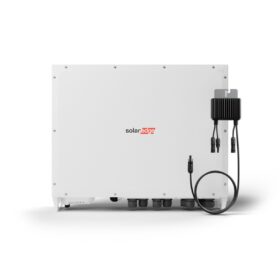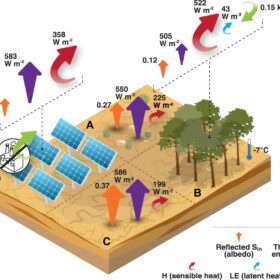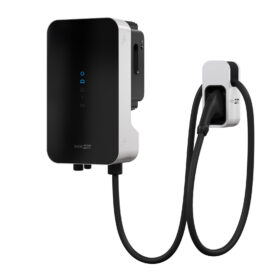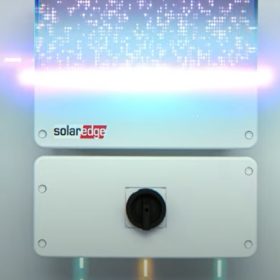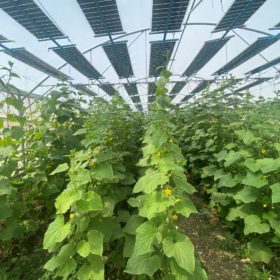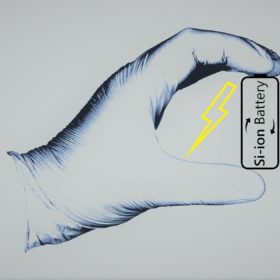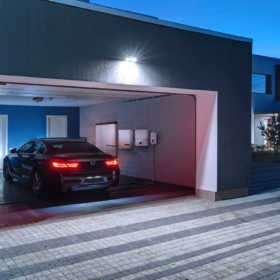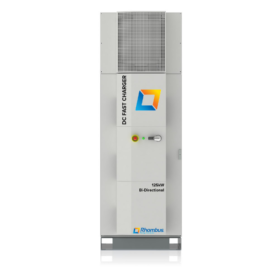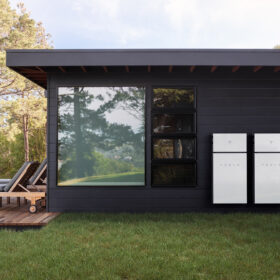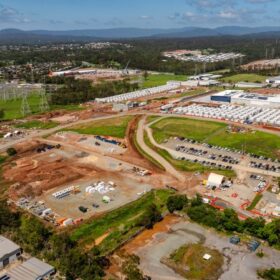SolarEdge unveils inverters for smaller solar projects
SolarEdge has unveiled its new TerraMax Inverter, which boasts 99% efficiency and enables 200% DC oversizing. It features an integrated night-time PID rectifier and is paired with the company’s H1300 Power Optimisers.
New research claims PV outperforms afforestation in combating climate change
Scientists from Israel have calculated how long it would take for PV plants and afforestation projects to offset their warming impacts caused by the darkening of land. The results showed that in drylands, PV fields could be over 50 times more efficient than afforestation.
SolarEdge unveils bidirectional EV charger
SolarEdge’s new bidirectional DC-coupled electric-vehicle (EV) charger enables vehicle-to-home and vehicle-to-grid applications and can seamlessly integrate with its home energy systems. It is scheduled for release in the second half of 2024.
SolarEdge announces record revenues in 2022
SolarEdge’s revenue rose 58% year over year to USD 3.1 billion ($4.5 billion) in 2022. It expects revenues for the first quarter of 2023 to be within the range of $1.33 billion to $1.37 billion.
New agrivoltaic project to test crop-responsive PV trackers for greenhouses
An international consortium led by Israel’s Al-Zahrawi Society has launched the Regace project to develop agrivoltaic solutions for greenhouses. It will investigate the performance of a new tracking system across locations and climates and use carbon dioxide enrichment to improve crop yield.
Uninterrupted PV generation without storage
An Israeli scientist has proposed a way to achieve uninterrupted PV power on the moon without using energy storage. The proposal involves the installation of PV panels around a 360-degree latitudinal ring close to one of the moon’s poles. There would be no inter-array shading, and static vertical PV arrays and arrays mounted on single-axis vertical trackers could be viable mounting structures.
Rechargeable silicon redox battery for renewable energy storage
Israeli researchers have developed a device that combines a reversible Si anode with halide cathodes and uses hybrid electrolytes to enable cell recharging. In the proposed system configuration, silicon is dissolved during the battery discharge process, and upon charging, elemental silicon is deposited.
Test production starts at SolarEdge’s 2 GWh Korean battery cell fab
The inverter and battery manufacturer says its new Sella 2 factory will produce cells for its residential solar-plus-battery products as well as for other applications.
Ever heard of synchroinverters? Grid-stabilising devices connecting renewables to distributed energy resources
A U.S.-Israeli consortium is developing synchroinverters – inverters that mimic a synchronous generator and are able to actively respond to the grid’s frequency changes while stabilising the voltage. The new devices are expected to do this simultaneously and provide grid stability services in less than 16.67 milliseconds.
SolarEdge posts more record numbers, says good times are set to continue rolling
The inverter and battery manufacturer said it has been sitting on a record order backlog for the current three month window and the opening quarter of the new year, which may in part be down to a long Covid shutdown at its Vietnamese production base.
